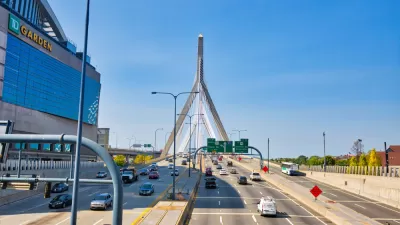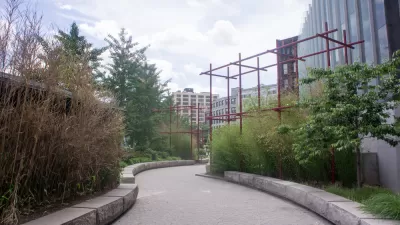For the last ten years, the Army Corps of Engineers has been dredging the bottom of Boston Harbor in an effort to make more room for larger cargo ships. Dredging is almost complete on the project.
"After the state and federal governments have spent nearly $100 million, the massive dredging project is nearly done."
"'This might not have been as glamorous as the Big Dig, but it will have a comparable effect on the economy of this region,' said Mike Keegan, the project manager for the US Army Corps of Engineers."
"The clam-shell dredges were needed to remove the inevitable build-up of sediment that has made the harbor's shipping channels increasingly difficult to navigate for the growing number of large ships now visiting city ports. The channel, meant to have a depth of 40 feet, was on average 36 feet and, in some places, as low as 24 feet."
"With global trade expected to double by 2020 and cargo ships built larger to transport more goods, Boston is one of more than 25 ports in the United States that have been either expanding their channels or considering such projects. Both New York and Los Angeles are digging 50-foot channels."
FULL STORY: The other big dig

Planetizen Federal Action Tracker
A weekly monitor of how Trump’s orders and actions are impacting planners and planning in America.

Restaurant Patios Were a Pandemic Win — Why Were They so Hard to Keep?
Social distancing requirements and changes in travel patterns prompted cities to pilot new uses for street and sidewalk space. Then it got complicated.

Maui's Vacation Rental Debate Turns Ugly
Verbal attacks, misinformation campaigns and fistfights plague a high-stakes debate to convert thousands of vacation rentals into long-term housing.

In California Battle of Housing vs. Environment, Housing Just Won
A new state law significantly limits the power of CEQA, an environmental review law that served as a powerful tool for blocking new development.

Boulder Eliminates Parking Minimums Citywide
Officials estimate the cost of building a single underground parking space at up to $100,000.

Orange County, Florida Adopts Largest US “Sprawl Repair” Code
The ‘Orange Code’ seeks to rectify decades of sprawl-inducing, car-oriented development.
Urban Design for Planners 1: Software Tools
This six-course series explores essential urban design concepts using open source software and equips planners with the tools they need to participate fully in the urban design process.
Planning for Universal Design
Learn the tools for implementing Universal Design in planning regulations.
Heyer Gruel & Associates PA
JM Goldson LLC
Custer County Colorado
City of Camden Redevelopment Agency
City of Astoria
Transportation Research & Education Center (TREC) at Portland State University
Camden Redevelopment Agency
City of Claremont
Municipality of Princeton (NJ)




























